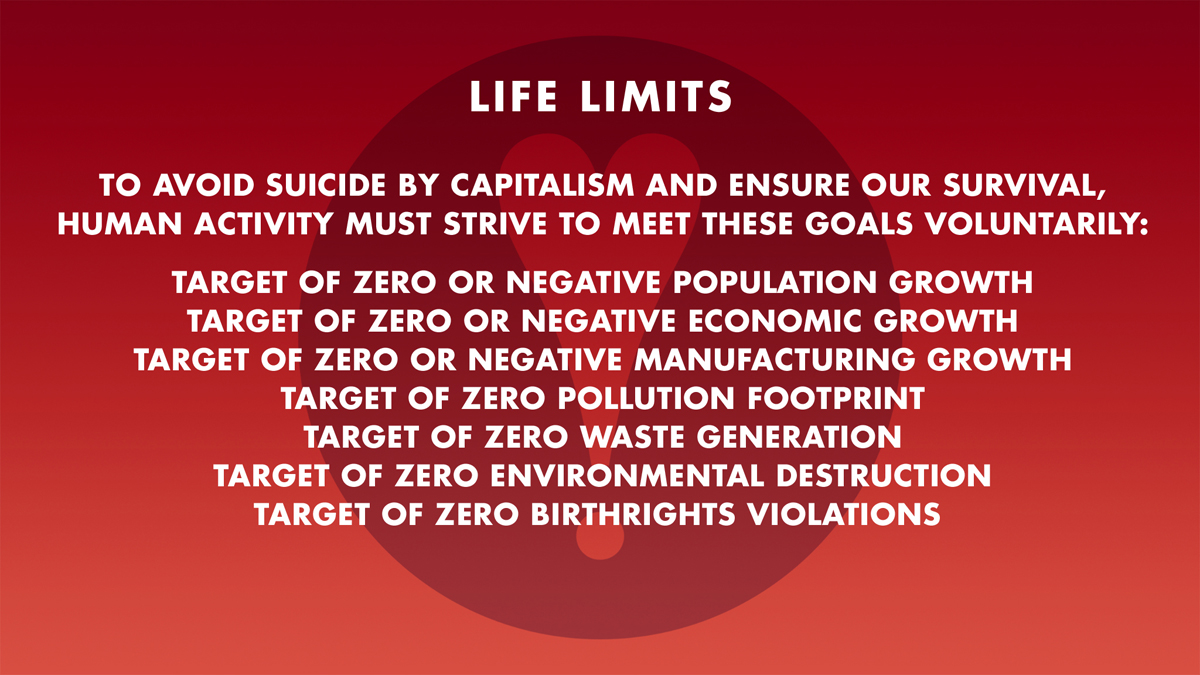GLOBAL GOVERNANCE OBJECTIVES
Planetism describes the responsible purpose of mind to cultivate a healthy global culture. A responsible society must recognize the scientific limitations of Earthly life when cocreating a healthy future. Therefore, we are obligated out of necessity to accept these natural limits and operate within them voluntarily. This LIFE LIMITS list is a set of Universal objectives as they apply to self-governance, production, procreation, consumption and conservation. They apply to everyone and every organization, everywhere.

It is up to each of us to advocate migration to Planetism, as reflected in our teaching, working, and political participation. It is obvious that these goals stand in direct conflict with criminal culture, so our task is to change the course of history, dismantle the institutions of capitalism, and depose the financial-elite oppressors of life.
TOP CONSERVATIVE GLOBAL PRIORITIES: 1] Codiscover & cocreate healthy culture 2] Democratize global governance 3] Co-op all business as local stewardships 4] Replace fossil and nuclear based energy generation with renewables 5] Reduce Population-Consumption-Production-Pollution-Waste 6] Provide all living necessities as public-owned-run-utility at cost: Energy, Shelter, Food, Banking, Healthcare, Transportation, Communications, Science, Education 7] Convert killing-complex to environment restoration & cultivation technologies 8] Reserve remaining wild spaces from exploitation 9] Build local self-sustaining communities diversity
The most difficult of these objectives is number 9: Build local self-sustaining communities diversity. All major population centers are improperly designed and none are self-sustaining. This places the people of every city in great potential danger, primarily because supply channels can be easily interrupted. The inefficiency of shipping edible produce reduces the quality of the food, and wastes energy importing anything that is not generated locally. Cities can certainly grow most of the food they need, but elect to make high rents instead of innovating urban design to grow food, reduce waste and pollution. The point is that we need to rethink the concept and scale for the most efficient ways to live in densely populated settlements. In order to save infrastructure costs in the long term, quality community design cannot be expanded by overpopulation. We have to face this limit and plan for zero net growth, just as it is important to protect beautifully designed spaces that embrace nature.